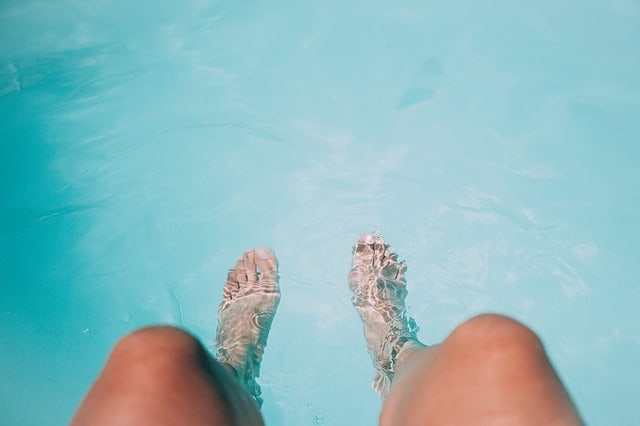ORP stands for oxidation-reduction potential and is measured in millivolts or mV. In general terms ORP refers to a substance’s ability to oxidize another agent resulting in a positive mV reading, or reduce another agent resulting in a negative mV reading. Most water has a positive ORP rating making it an oxidizing agent which is why it’s relevant for salt water pool owners.
ORP refers to the ability of the chlorine in your pool to eliminate contaminants in the water and thus keep the water sanitized for swimming. A good ORP level in a swimming pool is recommended to be in the + 750 mv to + 850 mv range. By comparison tap water is around + 200 mV and rainwater is + 600 mV.
Why is ORP important to your salt water pool?
Pool chlorine is measured in parts per million (ppm) and should be in the range of 1 ppm – 3 ppm to have a clean, sanitized pool for swimming. ORP is measured in millivolts (mV) and for a swimming pool, is generally recommended to be in the range of + 750 mV to + 850 mV.
Benefits of ORP measurement in your pool include the following:
- The commercial pool industry uses ORP testing due to regulations so it’s already used by pool professionals.
- ORP has been proven to be a strong predictor of water bacterial quality, more so than other methods.
- ORP can deliver a detailed analysis of the free chlorine in your pool.
- For salt water pool owners, active management and monitoring of your ORP level tells you whether or not you have the correct level of chlorine and adjusts it automatically on your behalf.
So while commercial pools have active ORP measured with sensors by law, you have the option of having similar features for your home pool.
Do you need to measure the ORP in your pool?
In over 10 years of salt water pool ownership, I have never measured my ORP or even spoken about it with either of the two pool companies I’ve used during that time.
So why the bother?
Some chlorinator systems such as the AquaRite Pro, Aqua Plus and Pro Logic brand models from Hayward offer the ability to add their Sense and Dispense functionality as a paid add on option. Sense and Dispense automatically measures ORP and pH and makes adjustments to keep pool chlorine levels in check.
So rather than the pool owner having to do this themselves, the system automates the function for you.
By incorporating ORP into the calculation, your pool can take advantage of a professional and highly accurate way of measuring and testing water, sampling pH and sanitizing activity in the pool, and automatically adjusting the chemical dosage based on the demand being placed on the pool.
So rather than reacting to changes in pool chemistry, this level of measurement proactively adjusts it on an ongoing basis.
Examples of ORP measurements
Here are examples of ORP measurements in various types of water with swimming pools at the bottom of the list with its recommended reading.
| Source | ORP reading in mV |
| Deep well water | 0 |
| Tap water | + 200 |
| Mineral water | + 200 to + 400 |
| Surface seawater | + 400 |
| Deep seawater | + 430 |
| Rainwater | + 600 |
| Cooling tower | + 450 to + 550 |
| Swimming pool | + 750 to + 850 recommended |

How does ORP affect pH in a swimming pool?
It is known that ORP decreases as pH rises. A pH range of 7.0 – 7.6 is ideal and required in your pool. When pH drops below 7.0 swimmers can experience stinging in their eyes but when pH rises over 8.0 it can irritate the skin.
It’s also known that in a salt water pool pH tends to rise which will reduce ORP as we just spoke about.
A low ORP indicates the presence of contaminants in your pool and shows that it is less sanitized than it should be.
So with an automated system like the Sense and Dispense product from Hayward, it monitors both ORP and pH and recognizes that keeping pH within the acceptable range of 7.2 – 7.8 is critically important along with the other key aspects of pool chemistry. It utilizes CO2 to keep pH within range which keeps ORP at desired levels as well.
Summary
What do salt water pool owners need to know about ORP? Other than being aware of it, probably not much. Unless you happen to own the Hayward Sense and Dispense feature for your chlorinator or competitive product and would like to learn more about how ORP affects the success of your salt water pool, that is. In that case, it’s a nice to know to help you learn more about your salt water pool system.


